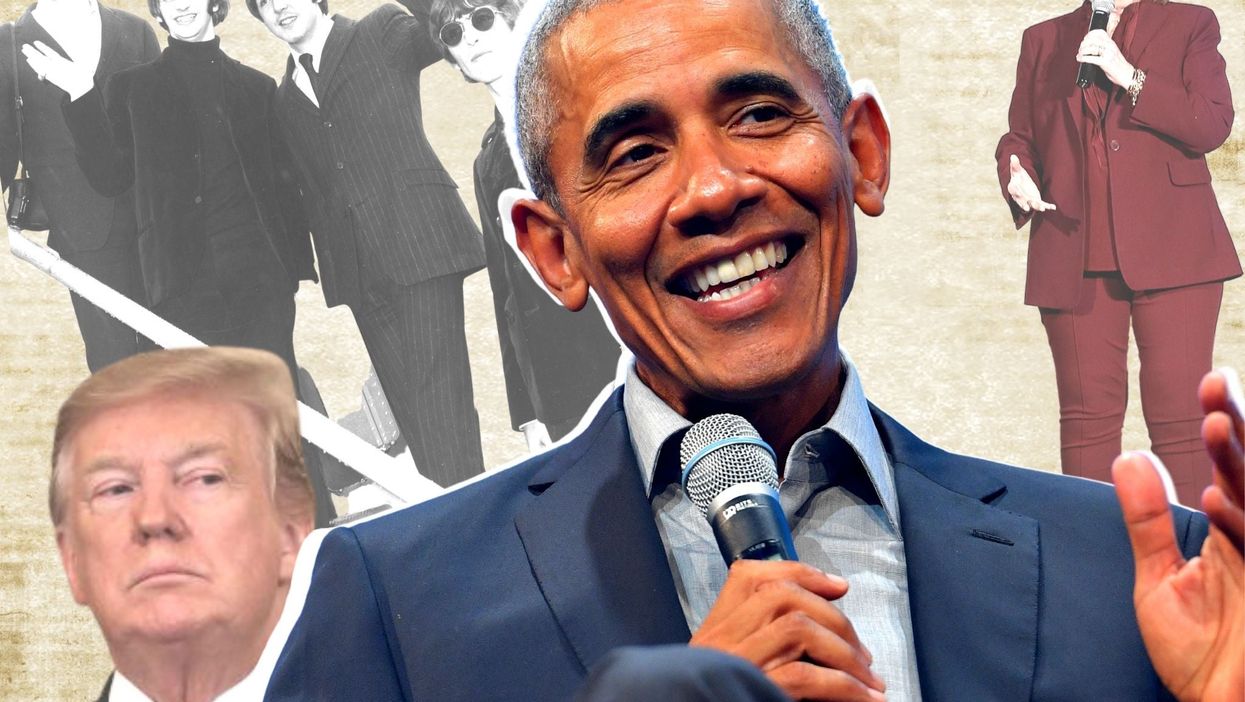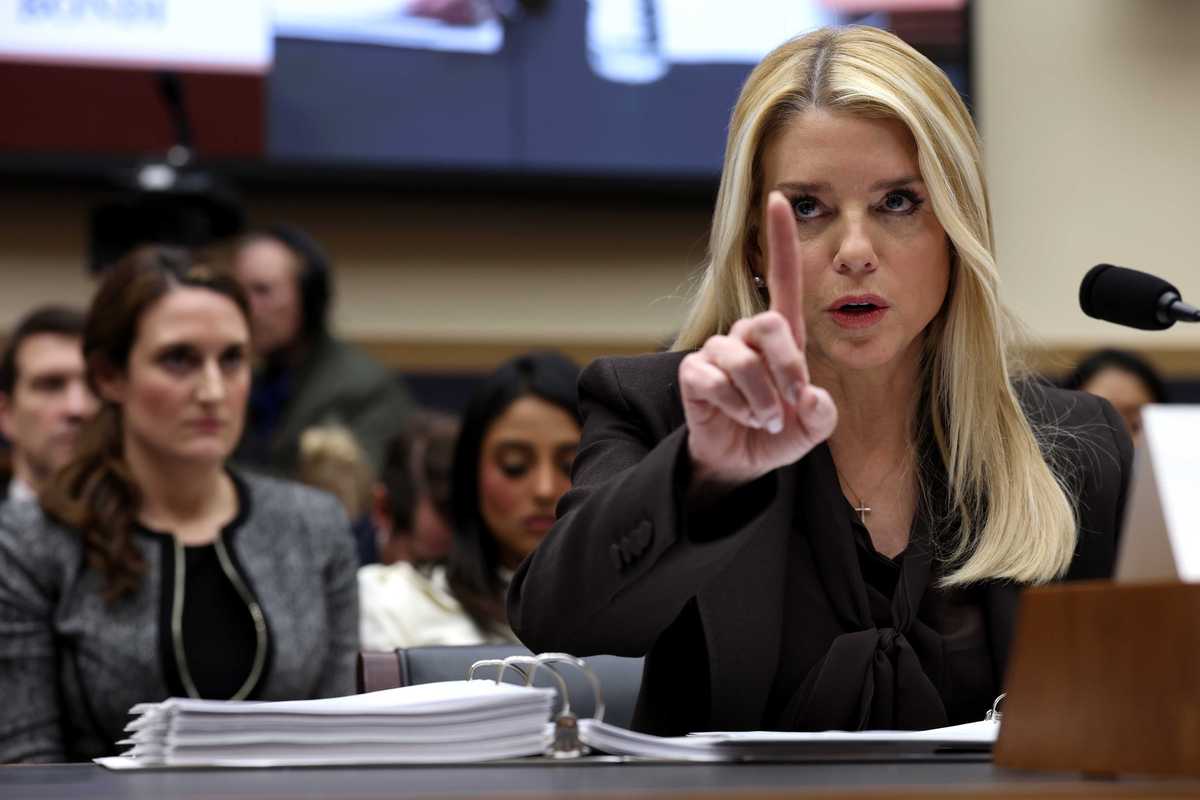Celebrities

Getty, iStock, indy100
Last week, Barack Obama released the first volume of his highly anticipated memoir A Promised Land.
In a tweet, the former president said that in the book “I try to provide an honest accounting of my presidency, the forces we grapple with as a nation, and how we can heal our divisions and make democracy work for everybody.”
The book chronicles Obama’s political career up until the death of Osama bin Laden in May 2011. A second volume is expected to pick up from there.
Since publication, A Promised Land has received mixed reviews.
For The New York Times, writer Chimamanda Ngozi Adichie praised Obama’s writing style, saying it is “nearly always pleasurable to read, sentence by sentence, the prose gorgeous in places, the detail granular and vivid.”
She also highlights his ability to intersperse political passages with personal anecdotes and colour.
However, Carlos Lozada writes for The Washington Post that Obama has a tendency to overdo the history lessons, making for “tedious reading”. He says: “I normally take notes while I read; here, I wanted to grab a red pen and slash out lines. For Obama, just about every moment is a teachable one.”
On social media, the book has also divided opinion. A passage in which Obama described reading socialist literature at university in order to impress women – specifically an “ethereal bisexual” – drew mixed responses. Some people interpreted his behaviour as “predatory”, while others saw it simply as a typical attitude towards social interaction. The passage quickly went viral and has of course been immortalised in a meme.
Obama is also facing legal action from an Indian lawyer who is reportedly filing a civil suit against him for “insulting and humiliating Congress party politicians”. A hearing is scheduled for 1 December.
It’s indisputable though that Obama’s access to some of the most famous people on the planet makes for fascinating reading.
From pop stars to world leaders, the former president seems to have a story or an opinion on anyone you could possibly name.
Here’s what he had to say about 15 of the people we’re all most curious about:
On Bob Dylan:
“I can still hear Bob Dylan reworking a version of 'The Times They Are A-Changing before shaking my hand and vanishing without a word.”
On Queen Elizabeth:
“Queen Elizabeth II embodied the special relationship between the United States and the United Kingdom, and Michelle and I always loved spending time with her.”
On Vladimir Putin:
“Physically, he was unremarkable: short and compact - a wrestler’s build - with thin sandy hair, a prominent nose and pale, watchful eyes...I noticed a casualness to his movements, a practiced disinterest in his voice that indicated someone accustomed to being surrounded by subordinates and supplicants. Someone who’d grown used to power.”
On Donald Trump:
“It was clear Trump didn’t care about the consequences of spreading conspiracy theories that he almost certainly knew to be false, so long as it achieved his aims; and he’d figured out that whatever guardrails had once defined the boundaries of acceptable political discourse had long since been kicked down.
"He understood instinctively what moved the c onservative base most, and he offered it up in unadulterated form.
"I knew the passions he was talking, the dark, alternative vision he was promoting and legitimising.”
On Jacob Zuma:
“Struck me as amiable enough [...] by all accounts, though, much of the goodwill built up through Mandela’s heroic struggle was being squandered by corruption and incompetence.”
On Manmohan Singh:
“For the duration of his tenure as prime minister I would find Singh to be wise, thoughtful, and scrupulously honest.”
On Hu Jintao:
“By all accounts, Hu Jintao, a nondescript man in his mid sixties with a mane of jet-black hair (as far as I could tell, few Chinese leaders turned gray as they aged) – was not seen as a particularly strong leader.”
On Nancy Pelosi:
“I love that woman.”
On David Cameron:
“In his early forties, with a youthful appearance and a studied informality (at every international summit the first thing he’d do was take off his jacket and loosen his tie), the Eton-educated Cameron possesses an impressive command of the issues, a facility with language and the easy confidence of someone who’d never been pressed too hard by life.”
On Gordon Brown:
“Lacked the sparkly political gifts of his predecessor [...] but he was thoughtful, responsible, and understood global finance and although his time in office was to prove short-lived, I was fortunate to have him as a partner.”
On Angela Merkel:
“The more I’d gotten to know Angela Merkel, the more I’d come to like her; I found her steady, honest, intellectually rigorous, and instinctually kind.
"But whenever I suggested to her that Germany needed to set an example by spending more on infrastructure projects or tax cuts, she politely but firmly pushed back. ‘Ya, Barack I think maybe that’s not the best approach for us’ she would say, her face pulling into a slight frown, as if I’d suggested something a little tawdry.”
On Paul McCartney:
“There was the time Paul McCartney serenaded my wife with ‘Michelle’.
"She laughed, a little embarrassed, as the rest of the audience applauded, and I wondered what Michelle’s parents would have said back in 1965, the year the song came out, if someone had knocked on the door of their South Side home and told them that the Beatle who wrote it would be singing it to their daughter from a White House stage.”
On Joe Biden:
“Decent, honest and loyal.”
On Hillary Clinton:
“Fair or not, I didn’t see how she could close America’s political divide, or change how Washington did business, or provide the country with the fresh start it needed.”
On his wife Michelle:
“Despite Michelle’s success and popularity, I continued to sense an undercurrent of tension in her, subtle but constant, like the faint thrum of a hidden machine.”
And, finally, on himself – the man the book is ultimately really about:
“I started having a recurring dream. In it, I find myself on the streets if some unnamed city, a neighbourhood with trees, storefronts, light traffic.
"The day is pleasant and warm, with a soft breeze, and people are out shopping or walking their dogs or coming home from work. In one version I’m riding a bike, but most often I’m on foot, and I’m strolling along, without any thoughts in particular, when suddenly I realise that no one recognises me.
"My security detail is gone. I wander into a corner store and buy a bottle of water or iced tea, making small talk with the person behind the counter. I settle down in a nearby bench, pop open the cap on my drink, take a sip, and just watch the world passing by.
"I feel like I’ve won the lottery.”
MORE: Joe Biden elected as 46th president of the U.S. is the beacon of hope we need
Top 100
The Conversation (0)













